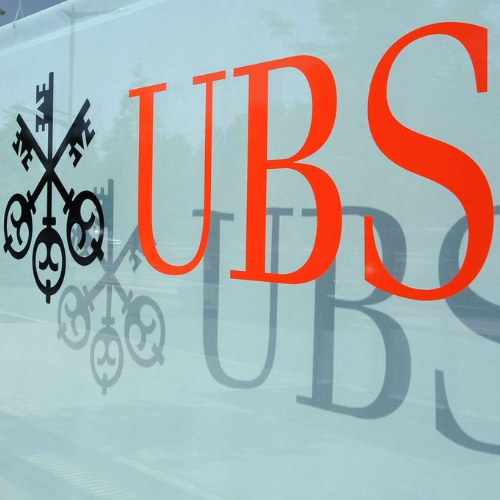The United States government has launched an investigation into the Swiss banking giant UBS regarding its handling of Russian clients that it inherited after taking over Credit Suisse earlier this year. The inquiry, led by the U.S. Office of Foreign Assets Control (OFAC), is part of an effort to determine whether UBS may be handling money tied to sanctioned Russian entities. This investigation underscores America’s increased scrutiny on foreign banks holding funds tied to nations like Russia, which faces sanctions due to its military actions against Ukraine.
OFAC Targets UBS Over Russian Accounts from Credit Suisse
The U.S. Office of Foreign Assets Control (OFAC), a powerful sanctions-enforcement agency, has written to UBS with questions about how the bank is handling these accounts. According to sources familiar with the matter, UBS and OFAC have held initial discussions to determine if any of the accounts from Credit Suisse might violate U.S. sanctions on Russian individuals and organizations.
OFAC enforces sanctions by restricting access to funds for individuals, companies, and even countries the U.S. considers a threat to its policies or security. These sanctions are an influential tool in international relations, especially for countries like the U.S., which uses them to influence the actions of countries like Russia and Iran. OFAC is known for being strict in its investigations, and if UBS is found to have been holding funds for sanctioned Russian individuals, it could lead to heavy penalties, or, in rare cases, restrictions on access to the U.S. dollar, a vital currency in global banking.
UBS, which acquired Credit Suisse in a deal that helped prevent the collapse of the smaller bank, now finds itself in the middle of an international financial investigation. OFAC’s scrutiny focuses specifically on Credit Suisse accounts that were linked to Russian clients, now overseen by UBS. According to UBS, they are cooperating with the inquiry and have taken steps to isolate any funds that could be seen as problematic, with the aim of avoiding potential penalties.
Problematic Money: Russian Funds and Western Sanctions
Credit Suisse, a Swiss bank with a history of financial controversies, faced severe financial difficulties in March 2023, partly due to past issues such as money laundering. UBS took over Credit Suisse in a move that was seen as a rescue for the troubled bank. Now, however, the Russian clients previously served by Credit Suisse are raising questions, especially given the tight sanctions the U.S. and its allies have placed on Russia.
Handling Russian money has become increasingly difficult for banks, as these sanctions are extensive and cover a wide range of Russian individuals and companies. Before its acquisition, Credit Suisse reportedly managed billions of dollars on behalf of Russian clients—estimated to be around $35 billion, or 4% of all assets Credit Suisse was managing at that time. UBS has been going through Credit Suisse’s records, identifying clients and funds it may need to offload or separate from its main operations.
UBS’s Legal Struggles: Navigating the Credit Suisse Money Laundering Case
Sanctions can be complex, as they don’t just target individuals but may also apply to any bank processing payments or managing accounts for those on a sanctions list. In severe cases, banks found in violation of sanctions may lose access to the U.S. dollar. This poses a serious threat, as the dollar is the world’s main currency for trade and finance. UBS is working carefully to avoid these risks, taking measures like suspending specific accounts that might raise concerns.
Swiss Regulation Under Pressure
Switzerland, known for its secretive banking laws, is also facing pressure to align more closely with international standards on transparency. One key issue is the lack of Swiss laws requiring full disclosure of asset ownership. Unlike many other countries, Swiss banks aren’t required to reveal the actual owners of properties, companies, or assets held within their borders. This lack of transparency can make it challenging for international agencies, including OFAC, to trace funds tied to sanctioned individuals.
The U.S. has criticized Switzerland for what it sees as a gap in its regulations, expressing frustration that it’s easy for sanctioned entities to potentially hide money there. OFAC has concerns that Switzerland might allow not only Russian funds to pass undetected but also those from countries under heavy sanctions, such as Iran. Although UBS, a major Swiss bank, is not being directly accused of intentionally hiding Russian assets, smaller private banks in Switzerland have drawn more intense scrutiny due to suspicions that some may be assisting in hiding funds for sanctioned individuals by masking their identities.
To address these issues, the Swiss government plans to introduce new rules that would require more transparency around asset ownership. The proposal includes creating a register that shows the real owners of companies and properties and placing more restrictions on lawyers who might help clients mask their identities. In its recent financial report, UBS acknowledged that the constantly changing sanctions environment is challenging and requires ongoing adjustments to their anti-money laundering (AML) and know-your-customer (KYC) protocols.
The results of the investigation will ultimately determine whether UBS faces penalties for its handling of former Credit Suisse accounts connected to Russian clients. As the U.S. remains vigilant in its sanctions enforcement, the Swiss bank must tread carefully to avoid sanctions penalties or risks to its access to the U.S. financial system.


